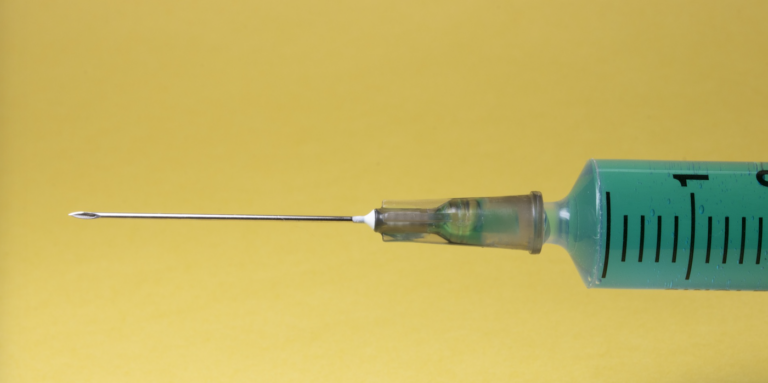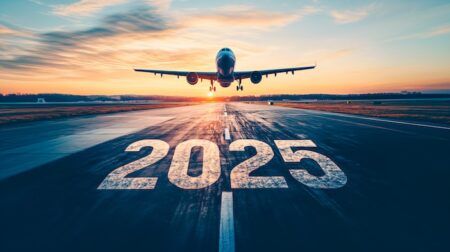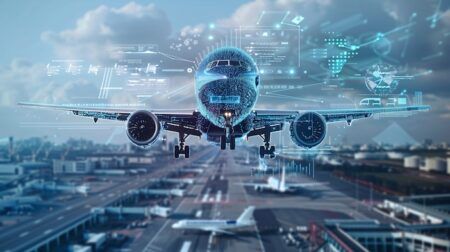As Covid-19 vaccinations continue to take place, despite France’s decision to temporarily close its border with the UK for freight as well as passengers, an air charter specialist has underlined the growing challenges of transporting vaccines across the world.
58 different vaccines have been in clinical trials on humans over the last few months, with the Pfizer vaccine now in use in the UK and approved in the United States. But the burning question is how to transport vaccines across the globe safely and securely in the current environment.
According to Chapman Freeborn, a worldwide aircraft charter company, its industry will be a crucial partner in the process. However, aviation has been heavily affected by the pandemic, impacting capacity – and now faces even further challenges as many European countries close passenger movements by air to Britain because of a new strain of the virus reported in the UK.
The industry will respond positively, but large-scale movement of vaccines over a short period of time is complicated. Each day we awake to a new and additional supply chain challenge, and this is just the latest. Even before that we were in what I would call a ‘perfect storm’ scenario. The aviation industry, usually dominated and funded by passenger travel, is currently experiencing losses as the majority of those passenger fleets are grounded due to lack of travellers.
There has also been an enormous demand for freighter capacity and huge global demand for PPE (Personal Protective Equipment) during the first three quarters of 2020. We are now in the ‘peak period’, where traditionally large volumes are flown predominantly from Asia to Europe and the USA. Additionally, half of the World’s AN124 (the largest freight aircraft) fleet is grounded for maintenance, taking a large capacity away from the market. So, the potential of an urgent need for Covid-19 vaccine transportation puts the air freight industry in a difficult position.”
The industry can cope, but the latest news means even fewer aircraft are travelling – and France’s decision to close its borders from the UK for 48 hours, created another logistical nightmare. With an estimated 13,000 trucks per day moving between the United Kingdom and the European continent this will create a surge of air charter requirements to and from Europe and again take what little air capacity is available. But we are well positioned for this and have already put actions in place for our clients to ensure emergency products can still move
Key questions around where each vaccine will be manufactured and what temperature it will have to be transported in will also impact transportation. The vaccines that currently show the most potential, have to be transported in a controlled environment at very low temperatures.
The biggest challenge for the industry is transporting vaccines that require shipments to be kept at temperatures as low as -70 degrees°C (-94°F). Moderna requirements are less stringent – ‘only’ -20°C (-4°F). The University of Oxford vaccines would be the easiest to transport as it can be stored in regular fridge temperatures of 2 to 8°C (35.6 to 46.4°F).
These requirements make it even more important that the transportation effort is co-ordinated and regulated. Under normal circumstances, vaccines and pharmaceuticals are handled by approved Global Freight Forwarders. These companies have invested millions over decades in ensuring that their staff are fully trained and their facilities in strategic locations are GDP (Good Distribution Practice) accredited.
Likewise, many airlines have also gone through this process to be CEIV (Centre of Excellence for Independent Validators in Pharmaceutical Logistics) accredited. However, depending on the temperature range of the vaccine, all aircraft capacity will be required to move this enormous volume. Many airlines and other companies are getting ready to support this global logistics requirement and are upgrading facilities.
The other issue for the industry is what happens when the vaccine arrives at its destination, with an integrated effort required to ensure it is stored and transported correctly on its ongoing journey. Once the aircraft are offloaded, the product will need to go into warehouses at airports with ‘Cool Chain’ capabilities. They will then need to be transported using ‘reefer trucks’ to ensure the integrity of this precious commodity – so the entire supply chain needs to work together.
We have multiple airlines within our group of companies with multiple assets and also many commercial airline partners, ground handling companies and trucking networks. This is what is going to be required to transport the vaccines globally, but it’s clear that many people will need to work together to make this happen.





